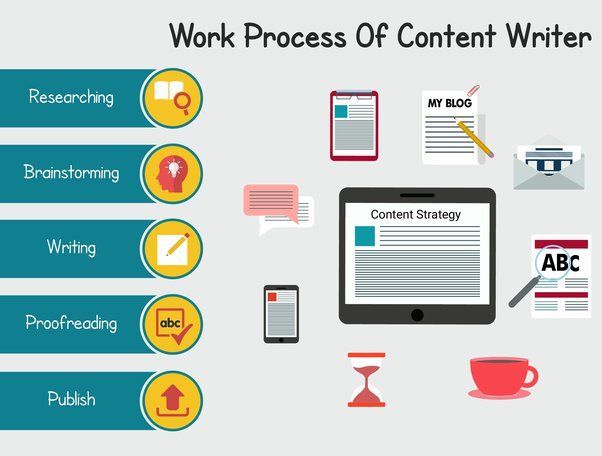Introduction
Content is present everywhere in the modern digital environment, including blogs, social media posts, websites, email newsletters, and product descriptions. Every useful online material is the result of a content writer’s labor. However, what is content writing exactly?
Planning, creating, and revising information for a specific purpose—usually digital marketing, education, or communication—is known as content writing. Delivering the appropriate message to the appropriate audience in the appropriate tone is more important than simply stringing words together.
Writing content has become a crucial talent and a potent marketing tool as more companies and individuals go online. The definition, types, significance, essential abilities, and ways that content writing varies from other types of writing are all covered in this article.
What is Content Writing?

Writing content for a variety of digital media is known as content writing. A particular audience is intended to be informed, engaged, persuaded, or entertained. Providing value while achieving a commercial or communication aim—like boosting website traffic, creating leads, advertising a product, or instructing readers—is the main objective.
To put it simply, content writing consists of clear messaging, helpful writing, and digital objectives.
Types of Content Writing

Content writing isn’t a one-size-fits-all activity. Different goals and platforms require different types of content. Below are some common types:
1. Blog Writing
Blogs are informative or opinion-based articles written to engage readers on specific topics. Businesses use blogs to improve SEO, build trust, and attract visitors. A well-written blog post balances valuable information with keywords to rank on search engines.
2. Website Content
This includes the main text found on a website—such as homepage copy, service pages, and about us sections. It must be concise, engaging, and clearly communicate what the business or brand is about.
3. Social Media Content
Social media writing involves crafting captions, tweets, posts, or stories that are short, catchy, and attention-grabbing. Each platform (e.g., Instagram, Twitter, LinkedIn) has a different tone and writing style.
4. SEO Content
SEO (Search Engine Optimization) content is written with the goal of ranking high on search engines. It involves the strategic use of keywords, meta tags, and headings while maintaining natural, reader-friendly writing.
5. Copywriting
Copywriting focuses on persuasion. It includes advertising copy, sales pages, landing pages, and product descriptions. The goal is to convince the reader to take a specific action—like buying a product or signing up for a newsletter.
6. Technical Writing
This involves writing complex information in a simple and structured format. Examples include manuals, product guides, FAQs, and how-to articles. Technical writing is common in industries like software, engineering, and healthcare.
7. Email and Newsletter Writing
Emails and newsletters are used to communicate with customers or subscribers. Content writers must create subject lines, body content, and calls-to-action that encourage readers to open, read, and click.
Why is Content Writing Important?

Content writing plays a critical role in digital communication and marketing. Here’s why it matters:
1. Builds Brand Awareness
Consistent and high-quality content helps a brand establish its identity and voice. It allows businesses to share their values, services, and mission with their target audience.
2. Enhances SEO and Website Traffic
Search engines reward websites that provide relevant, well-structured, and keyword-optimized content. Great content helps websites rank higher, increasing visibility and organic traffic.
3. Educates and Engages the Audience
Good content answers questions, solves problems, or entertains. It builds a connection with the audience and encourages them to return for more.
4. Converts Leads into Customers
Strategic content writing—especially in landing pages and product descriptions—can turn visitors into paying customers. The right words can drive action and increase sales.
5. Supports Other Marketing Efforts
Whether it’s email marketing, social media, or pay-per-click ads, all digital marketing strategies rely on strong written content to communicate effectively.
Key Skills of a Good Content Writer

A combination of technical and artistic abilities is necessary for success in content writing. Among the necessary abilities are:
- Outstanding Grammar and Writing Ability
Sentence structure, grammar, punctuation, and clarity cannot be compromised. Credibility is increased by using a formal tone and content free of errors.
- Capacity for Research
To bolster their writing, authors must compile reliable data, figures, and examples. Research done correctly guarantees that the information is reliable and educational.
- Knowledge of SEO
Understanding the fundamentals of SEO techniques, such as internal linking, meta tags, keyword utilization, and readability, can increase the visibility of material online.
- Flexibility in Style and Tone
The target audience’s expectations and the brand’s tone should be reflected in the content. The ability to transition between formal, informal, persuasive, and informational styles is a must for any writer.
- Managing Your Time
Writers frequently have strict deadlines to meet. It is essential to be able to plan, draft, edit, and submit on time.
- Originality
Even accurate information must be interesting. Information may be presented in novel and captivating ways with the use of creativity.
Content Writing vs. Copywriting: What’s the Difference?

Although the terms are sometimes used synonymously, copywriting and content writing have distinct functions:
Writing ContentWriting copy
teaches, entertains, or informsConvinces or sells
emphasizes long-form content and succinct, powerful messaging.
Examples include articles and blogs.Ads and sales pages are two examples
creates enduring connectionsMotivates prompt action
Although many authors are experts in both, knowing the difference is essential to conveying the intended message.
The Content Writing Process

An organized procedure is typically followed by successful content writers:
Knowing the Objective: What is the content intended to accomplish?
Who will read this content, according to audience research?
Research on Topics and Keywords Which keywords ought to be used? Which subjects are current or pertinent?
Writing a Draft: Producing the initial iteration of the material.
Grammar, tone, structure, and flow are all checked during editing and proofreading.
Adding pertinent keywords and formatting to improve visibility is known as SEO optimization.
Publication and Promotion: Disseminating the information via many platforms.
Conclusion
Writing content involves much more than simply putting words on paper. It is a creative and strategic process that aids brands in establishing a connection with their target market, providing value, and accomplishing corporate objectives. Every word counts when creating a blog post or an engaging product description.
In a time when “content is king,” there is an increasing need for qualified content writers. Knowing the foundations of content writing can provide you with a significant edge in the digital sphere, regardless of your background—business owner, aspiring writer, or marketer.
You can influence, engage, and inspire others in addition to informing them when you become an expert content writer.
FAQ’S
What is content writing, and what does a content writer do?
Content writing is the process of planning, creating, and editing written material for digital platforms. A content writer produces various types of content such as blog posts, website copy, social media posts, and more—aiming to inform, engage, or persuade a specific audience.
How is content writing different from copywriting?
Content writing is usually informative or educational, focusing on building audience trust over time through blogs, articles, and guides. Copywriting is more promotional, aimed at persuading readers to take immediate action, such as buying a product or signing up for a service.
What skills are needed to become a good content writer?
A good content writer should have strong writing and grammar skills, creativity, research ability, understanding of SEO, adaptability in tone, and time management. These skills help in creating content that is both engaging and effective.
Why is content writing important for businesses?
Content writing helps businesses build brand awareness, improve SEO rankings, engage audiences, and convert leads into customers. Quality content is a key part of digital marketing and helps companies connect with their target audience effectively.
What types of content can a content writer create?
A content writer can create a wide range of content, including:
- Blog posts
- Website content
- Social media posts
- SEO articles
- Product descriptions
- Email newsletters
- Technical documents
- Ebooks and more
Each type serves a different purpose depending on the brand’s goals and target audience.










